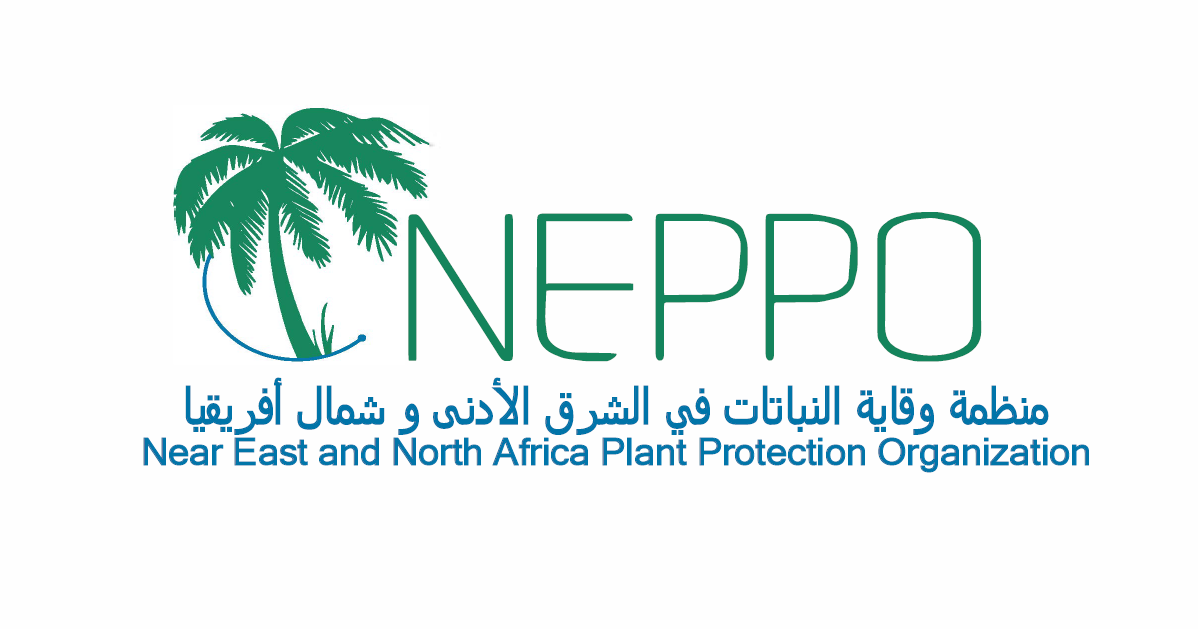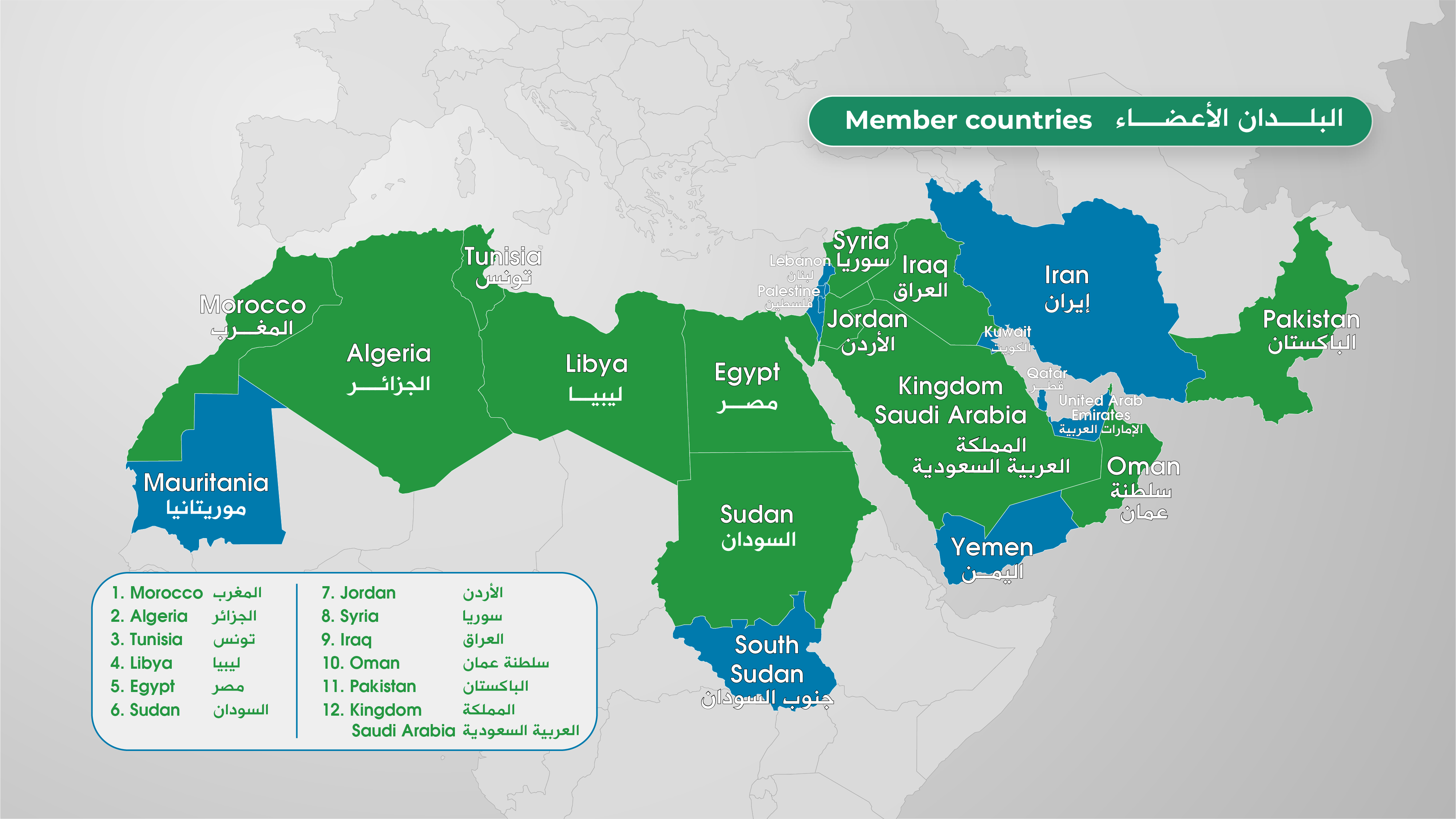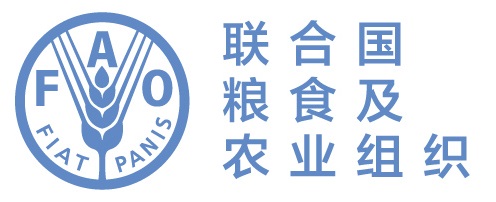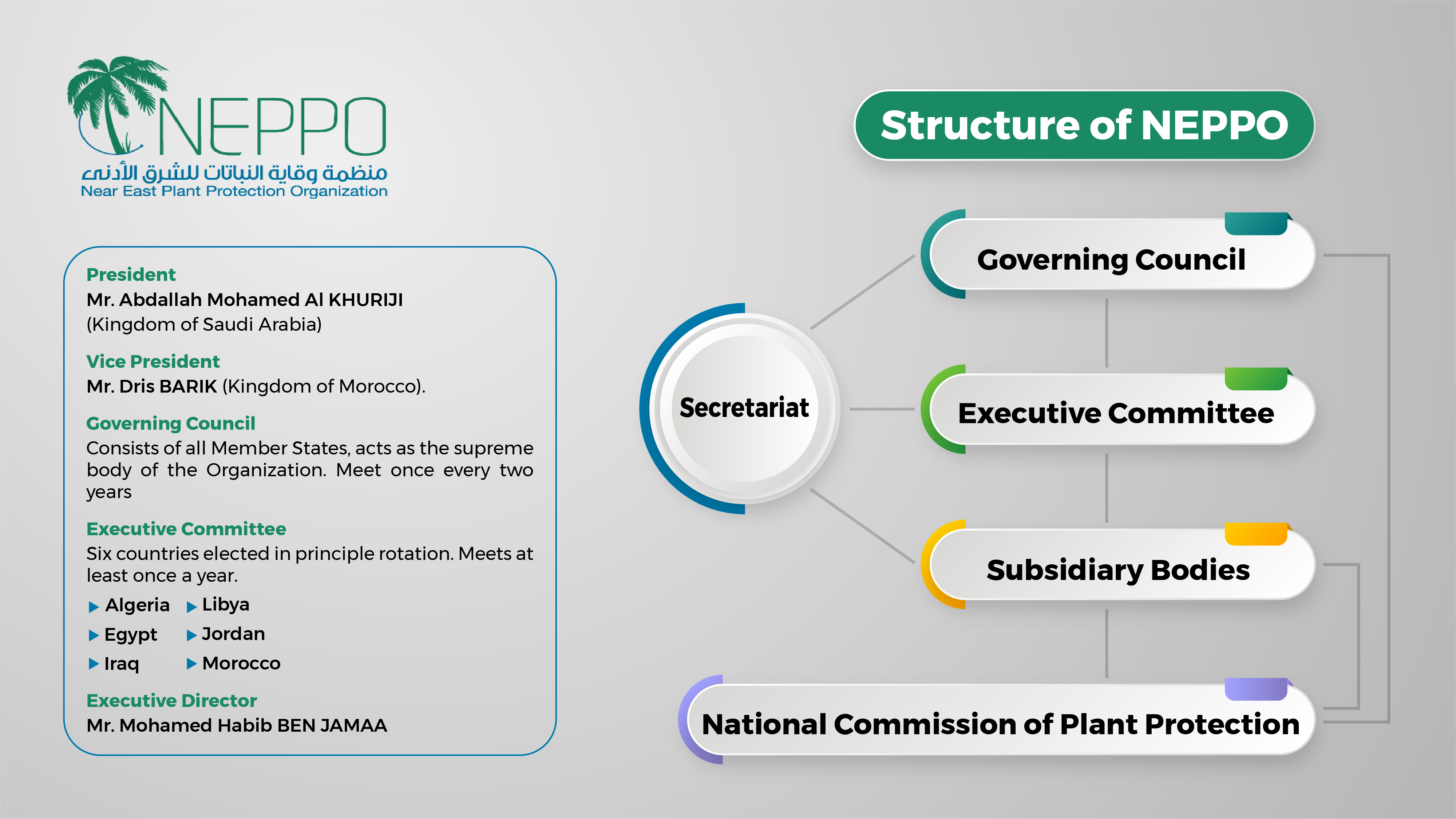Near East and North Africa Plant Protection Organization
(NEPPO)RPPO contact
Mr. Benjamaa Mohamed Habib
Executive Director of the Near East and North Africa Plant Protection Organization(NEPPO), Professor
The Near East and North Africa Plant Protection Organization
NEPPO, B.P 14001, Rabat Al Madina CD/96347
Phone:
+212537262850
Mobile:
+212722114061
Fax:
+212537708763
Email: [email protected]
Alternate Email:
[email protected]
Preferred languages:
English,
French,
Arabic
网站:
http://www.neppo.org
Date contact registration:
23 Feb 2023
The Near East and North Africa Plant Protection Organization (NEPPO), a Regional Intergovernmental Organization encourages cooperation, within the framework of the International Convention on Plant Protection Convention (IPPC), in particular its article IX establishing regional organizations in the protection of plants. It is a platform for member countries to develop and implement a regional strategy and standards for the protection of plants.
In response to a request made by the Near East Regional Commission on Agriculture at its Third Session held in Nicosia (Cyprus) from 11 – 15 September 1989, and following a recommendation made by a technical consultation held in Rome from 14- 16 April 1992, A conference of Plenipotentiaries on the establishment of the Near East Plant Protection Organization (NEPPO), organized by FAO, was held in Rabat Morocco 16-18 Feb.1993. The conference was attended by 17 countries from the FAO Near East region signed.
The NEPPO entered into force on January 9, 2009. The first Governing Council was held in Rabat (Kingdom of Morocco) in October, 2010, during which NEPPO established its structure, adopt rules and procedures, elected its President and Vice-president and nominated its Executive Director.
NEPPO was formally recognized as a Regional Plant Protection Organization (RPPO) under the IPPC on 23 March 2012.
MISSIONS
Agreement of Establishment of NEPPO Article IV (Missions).
In order to achieve its objectives, the Organization shall:
(a) promote the implementation of the provisions of the International Plant Protection Convention with particular attention to measures for the control of pests, and advise Governments on the technical, administrative and legislative measures necessary to prevent the introduction and spread of pests of plants and plant products;
(b) promote the implementation of the provisions of the International Code of Conduct on the Distribution and Use of Pesticides adopted by the FAO Conference at its Twenty third Session in November l985 and amended at its Twenty fifth Session in November l989;
(c) assist Governments where necessary in carrying out measures to be taken in relation to the functions set out in (a) and (b);
(d) coordinate and stimulate where practicable international campaigns against pests of plants and plant products;
(e) obtain information from Governments, and any other source, on the existence, outbreak or spread of pests of plants and plant products and convey such information to Member States and organizations concerned;
(f) provide for the exchange of information on national phytosanitary legislation, or other measures affecting the free movement of plants and plant products;
(g) promote the harmonization of quarantine measures particularly phytosanitary principles, procedures and pest risks assessment in order that phytosanitary conditions are not used as unjustifiable trading restrictions;
(h) facilitate cooperation in research on pests of plants and plant products and methods for their control and in the exchange of relevant scientific information;
(i) publish in an appropriate form material for publicity purposes or for technical or scientific advancement as may be determined by the Organization;
(j) make recommendations to Governments on any of the matters referred to in this Article;
(k) take all necessary and appropriate action to achieve the objectives of the Organization.

Website:
http://www.neppo.org
Algeria, Egypt, Jordan , Iraq , Libya , Morocco, Oman , Pakistan , Saudi Arabia , Sudan , Syria , Tunisia

Objectives
Agreement of Establishment of NEPPO Article III
The objectives of NEPPO shall be primarily to promote international and regional cooperation in the region in strengthening plant protection activities and capabilities with the aim of:
- Preventing the introduction and spread of pests.
- Control of pests of plants and plant products in an appropriate manner.
- Promoting safe trade by applying regional and international standards for phytosanitary measures.


